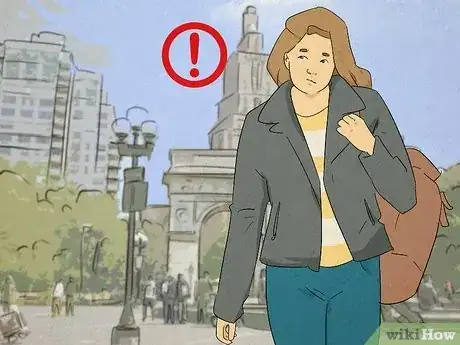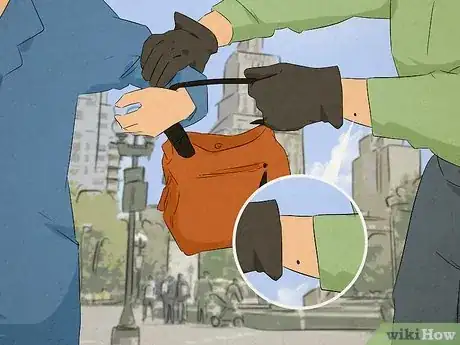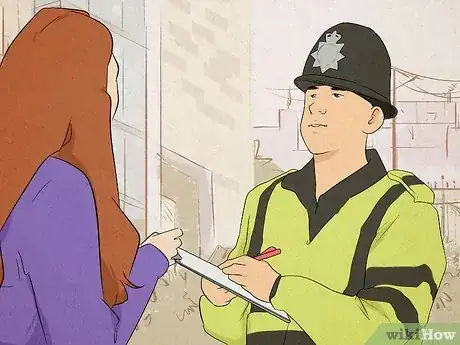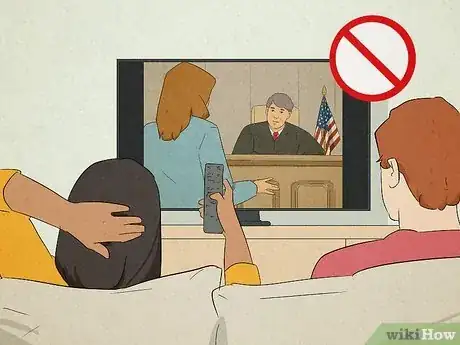This article was co-authored by Sandra Possing and by wikiHow staff writer, Hunter Rising. Sandra Possing is a life coach, speaker, and entrepreneur based in the San Francisco Bay Area. Sandra specializes in one-on-one coaching with a focus on mindset and leadership transformation. Sandra received her coaching training from The Coaches Training Institute and has seven years of life coaching experience. She holds a BA in Anthropology from the University of California, Los Angeles.
There are 11 references cited in this article, which can be found at the bottom of the page.
Are you trying to remember how an event played out but having trouble jogging your memory about what actually happened? When you’re an eyewitness to an event or incident, there are a lot of things going on at once fighting for your attention. However, there are some important details you should focus on so you can give a more accurate testimony. Keep reading, and you’ll find everything you’ll need for recalling your memory so your eyewitness account is reliable.
Things You Should Know
- Try to take in all the details from your surroundings. Make note of who’s nearby, what’s happening in the area, and where any disturbances came from.
- Focus on distinguishable features, like someone’s height, weight, complexion, and scars. For a suspicious vehicle, note the make and model.
- Write down or record everything about the event as soon as you can so you can remember all the details while they’re fresh in your mind.
- Avoid watching the news or talking about what happened with other people since it could influence how you remember the event happening.
Steps
Warnings
- Avoid giving any opinions or irrelevant information in an eyewitness account since someone reading it just wants to know the facts.[15]⧼thumbs_response⧽
References
- ↑ https://www.ncbi.nlm.nih.gov/pmc/articles/PMC6818321/
- ↑ https://www.binghamton.edu/news/story/2803/persistence-of-memory-research-explores-ways-to-improve-eyewitness-recall
- ↑ https://manoa.hawaii.edu/dps/describing-a-suspect/
- ↑ https://www.cityofbrevard.com/440/Describing-a-Suspect-or-Vehicle
- ↑ https://news.northwestern.edu/stories/2012/09/your-memory-is-like-the-telephone-game
- ↑ https://www.binghamton.edu/news/story/2803/persistence-of-memory-research-explores-ways-to-improve-eyewitness-recall
- ↑ https://www.justice.gov.nt.ca/en/files/victim-services/Being%20a%20Witness.pdf
- ↑ https://www.psychologicalscience.org/teaching/myth-eyewitness-testimony-is-the-best-kind-of-evidence.html
- ↑ https://www.ojp.gov/pdffiles1/nij/178240.pdf
- ↑ https://www.justice.gov/usao-ak/tips-testifying
- ↑ https://www.ncbi.nlm.nih.gov/pmc/articles/PMC5544328/
- ↑ https://journals.sagepub.com/doi/10.1177/1745691617734878
- ↑ https://www.justice.gov.nt.ca/en/files/victim-services/Being%20a%20Witness.pdf
- ↑ https://www.justice.gov/usao-ak/tips-testifying
- ↑ https://www.justice.gov.nt.ca/en/files/victim-services/Being%20a%20Witness.pdf


































































